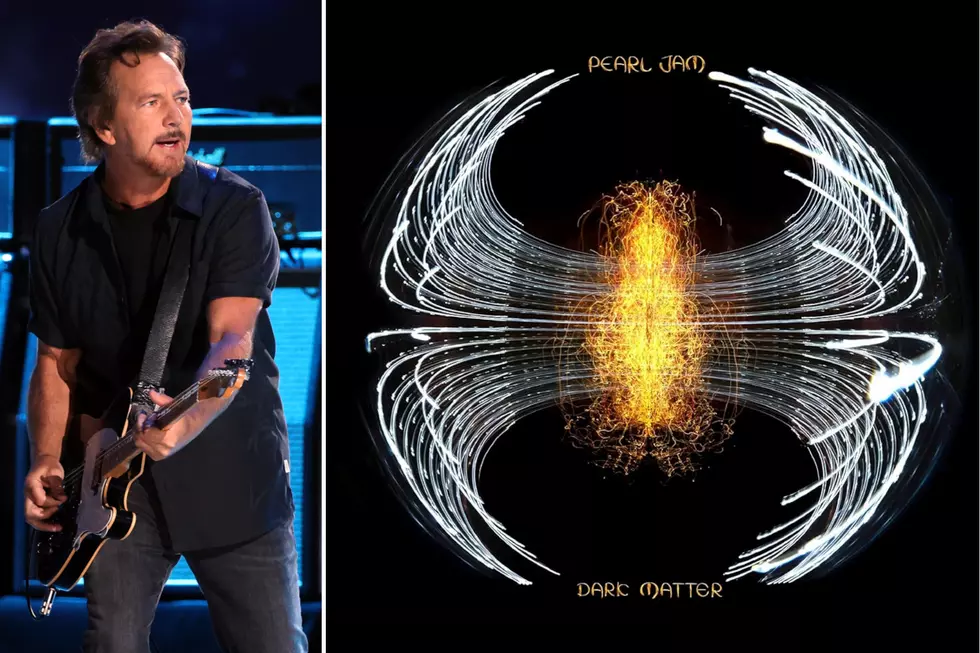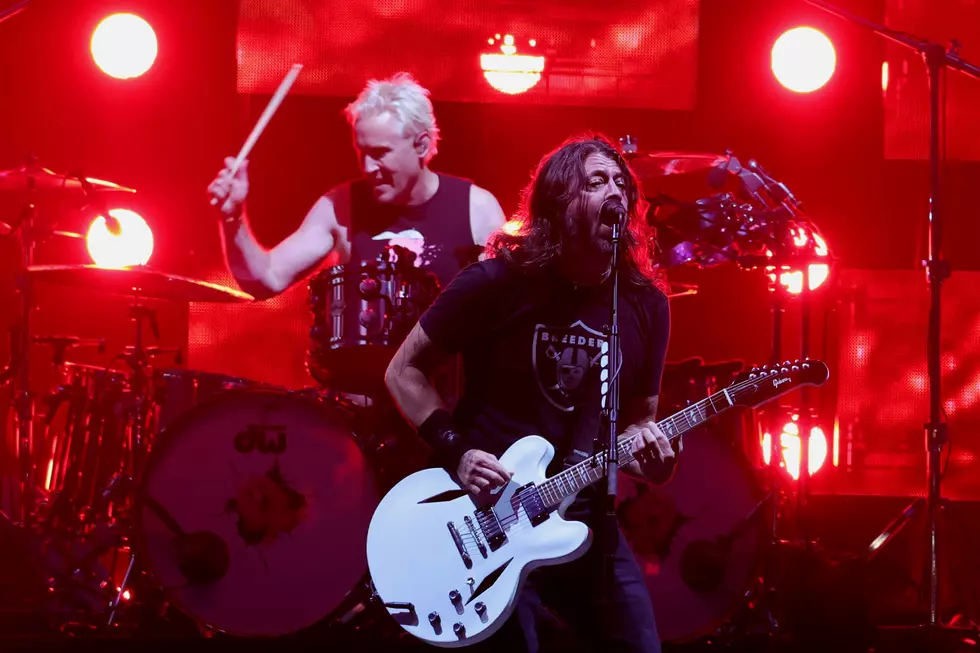Witherfall, ‘Nocturnes and Requiems’ – Exclusive Album Stream + Interview
Prog fans, allow us to introduce you to Witherfall, a band comprised of some faces you may recognize from bands like Iced Earth, White Wizzard, Into Eternity and more. They've partnered with Loudwire for an advanced stream of their debut album, the truly majestic Nocturnes and Requiems.
This album really is best digested in full, not that tracks like the scorching and cinematic "End of Time" and "What We Are Dying For" don't stand loftily on their own. Marrying surging grooves with neoclassical guitar work, both electric and acoustic, pointed drumming and moody power metal-styled vocals that occasionally blast upward into blaring falsettos, Witherfall's sound is rich, engaging and, overall, unquestionably catchy.
They challenge themselves with meaningful composition, riding forceful moments headfirst into whimsical classical pieces that seamlessly flow in and out of each other within the songs themselves and from track to track, sometimes bleeding into the next before you can even realize.
We also got the chance to pick the brain of guitarist Jake Dreyer (Iced Earth, ex-White Wizzard) about the album, which you can read about in our interview below while you crank Nocturnes and Requiems.
Pre-orders for the album can be placed at Witherfall's webstore, Amazon or digitally through iTunes. Stay up to date with everything the band is up to by following their Facebook page.
Interview With Witherfall Guitarist Jake Dreyer
There's great balance between so many styles on Nocturnes and Requiems, all tied together by neoclassical guitar playing, which makes for an elegant sounding album. What has classical music taught you about composition in the context or writing metal, especially as the band's sole guitarist?
From a technical perspective I would say that the chordal harmony found in the late classical era/early romantic period is one of the biggest concepts that we try and utilize in Witherfall. Early neoclassical players would take phrases, melodies and tonalities inspired by certain composers yet I very rarely hear harmonic movements that showcase the function of, say, a Neapolitan chord or an augmented sixth chord in the context of a metal song.
As a guitarist discovering different inversions and utilizing proper voice leading within these harmonic studies, I found and heard this to be interesting and relatable. Listening and studying classical music and their different eras really opened up my mind and ears to what music can do and say. For example a Liszt Piano Sonata can take a listener through various emotions; it can contain very simple diatonic melodies then go into a devastating technical arpeggio that's filled with all sorts of chromatic passing tones yet somehow flow and make sense. The contrast between two things, whether it's happy or melancholy, beauty and dissonance or simple and complex, are what inspire the writing.
Our condolences regarding Adam Sagan. What will be the most challenging, both personally and musically, about finding his successor?
One of the best traits about Adam Sagan as a drummer was his ability to compose drum patterns that fit the songs perfectly while showcasing his immense talent. He was unbelievable at writing parts that were both musical yet technical. A drummer's feel is very important and Adam always seemed to be able to know exactly what Joseph and I were hearing.
Adam came from more of an extreme / death metal style of drumming which definitely adds to the sound of Nocturnes and Requiems. He also had a great knowledge of genres of music outside of the rock / metal scene that really came to use during more of the progressive moments on the album.
Personally he was a very unique character, an extremely nice and positive guy which really helped out during the ridiculous amounts of hurdles that went into this production. Finding a drummer to honor Adam's parts on the record is a challenge. No question about it. He will never be replaced musically or personally. We do hope to find a person that can do his parts justice for live and future recordings. There are a lot of drummers that technically can play the parts that are recorded but the most important trait is finding someone that can compliment the ideas that Joseph and I compose.
Progressive music has become increasingly popular over the last decade. The attention span of a listener seems to have dwindled, yet there's celebration for music that takes repeated listens to fully understand. What do you think has made fans more open-minded towards complex music like Witherfall?
Although there are a lot of complex and technical moments during the Witherfall album, our ultimate goal is to have good songs with melodies that people can hum and that will hopefully get stuck in the listener's head. As much as I love simple melodies I also enjoy hearing well crafted musicianship that is executed in a well-written manner. That was basically the outline of Witherfall. The songs had to be good while still featuring high standards of musicianship. I am lucky to have had Joseph Michael, Adam Sagan and Anthony Crawford share this vision.
I think complex music is thought-provoking in the same way a good book or film is. There is a lot going on that won't be caught during a first playthrough, but after each listen more things will be noticed. There is nothing wrong with people listening to music as background noise, but I do think that more people are realizing that, just like a book or movie, an album can be an experience and it can take you on a journey if you allow yourself. Queen II is one of my favorite records of all time. Some may argue, but I consider that to be one of the band's most progressive and complex releases. Though it took multiple times of listening intently on the record before falling in love with it, no matter how many times I listen to that album I still discover new things.
More From Loudwire









